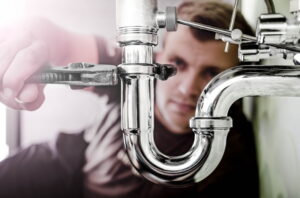Residential plumbing might seem overwhelming at first, but understanding the basics can save you time, money, and stress. Whether you’re a new homeowner or simply looking to become more informed, this beginner’s guide will walk you through the essential components of your home’s plumbing system and what you can do to keep it running smoothly. From fixing common issues to knowing when to call in the pros, a little plumbing knowledge can go a long way. With the right approach, you can protect your home, avoid water damage, and maintain a healthier, more efficient household.
What Is Residential Plumbing?
Residential plumbing refers to the system of pipes, fixtures, and appliances that deliver water into your home and carry wastewater away. It includes everything from your kitchen sink and bathroom shower to your water heater and outdoor spigots. A properly functioning plumbing system ensures clean water for drinking, cooking, and cleaning, while also safely removing wastewater.
Key Components of a Home Plumbing System
Understanding the main parts of your plumbing system helps you identify issues quickly and communicate more effectively with professional plumbers. Here are some critical components:
- Water Supply System: This brings fresh water into your home through a main line connected to a municipal water source or private well.
- Drain-Waste-Vent (DWV) System: This system removes wastewater and allows air into the pipes to maintain proper pressure and flow.
- Fixtures and Appliances: These include faucets, toilets, showers, dishwashers, and washing machines.
- Shut-Off Valves: Located near fixtures or the main water line, these let you turn off water during repairs or emergencies.
Common Plumbing Issues
Every homeowner encounters plumbing problems from time to time. Some of the most common include:
- Leaky Faucets: Often caused by worn-out washers or seals.
- Clogged Drains: Usually due to hair, grease, or foreign objects.
- Running Toilets: Frequently a result of faulty flappers or fill valves.
- Low Water Pressure: Can stem from sediment buildup or pipe corrosion.
Knowing how to troubleshoot minor issues—or when to call a service professional—can prevent bigger problems later.
Preventative Plumbing Maintenance Tips
Regular maintenance goes a long way in preventing costly repairs. Here are a few tips:
- Check for leaks under sinks and around appliances monthly.
- Avoid flushing anything other than toilet paper.
- Use drain strainers to catch hair and debris.
- Schedule a professional inspection annually to catch unseen problems.
When to Call a Service Professional
Some plumbing problems require immediate attention from a licensed expert. Burst pipes, sewer line backups, or water heater malfunctions are complex issues that demand specialized tools and knowledge. Delaying professional help can result in water damage, structural problems, or costly repairs. For trustworthy, local service, it’s essential to choose a company that understands the area’s infrastructure and codes.
If you’re looking for reliable residential plumbing in Marietta, HM Plumbing offers expert service and unmatched professionalism. Whether it’s a minor leak or a full system installation, our team is ready to help. Experience the difference that expert care and honest service can make in your home.
Contact HM Plumbing today for your residential plumbing needs. Serving with Integrity.

